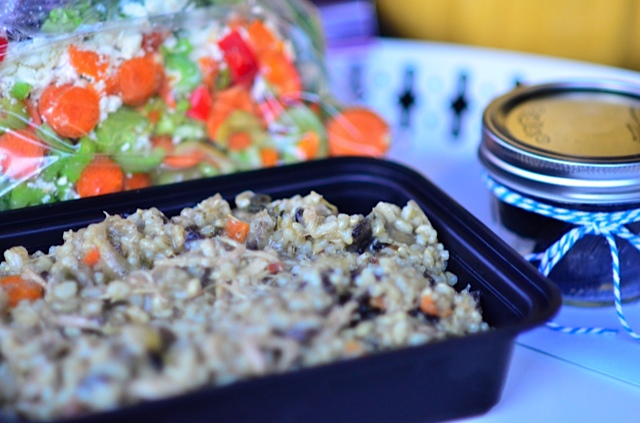A Baby Story
My first child came into the world believing that sleep was optional. She grew into a toddler who also believed that sleep was optional and is now a teenager who is the last one to fall asleep at sleepovers.
All of those baby books written by baby experts talked about how much sleep newborns need and how I should expect my precious new baby to sleep more than she was awake.
Sadly, the baby experts were wrong when it came to my particular child.
It didn’t take long for the chronic sleep deprivation to leave me stressed, anxious, and feeling unstable.
We were in total survival mode during those early days and weeks (and even months.)
But as every new parent knows, daily responsibilities continue even when one brings home a new baby. My husband still had to work and I had to return to my own professional duties shortly thereafter. Though my mom came in from out of town for a couple of weeks, eventually she had to return home. I vividly remember standing at the door, crying as she left, feeling completely unable to take care of myself and my insomniac baby without help.
Thankfully I did have help in the form of meals for my family.
They were a saving grace during those wearisome, unstable days. We received meals from our church, from my colleagues, and from my dear elderly neighbor across the street. Meals lasted for weeks and when they finally ran out, I may have cried again.
But those meals got me through a critical time, a time when new moms are desperate for the most basic of needs like sleep, sanity, and a hot shower.
Those meals also felt like love and support, reminding me that I wasn’t alone, that there were those I could call on if things got bad.
Of course there were also countless beautiful moments during those early days with my beautiful daughter. The joy of a new baby covers a multitude of unpleasantries.

Still, the new mom has a body that is sore and needs time to heal. She has hormonal fluctuations that are completely unpredictable. She’s learning to breastfeed or figuring out which formula her baby’s system can handle. She’s adjusting to a new normal that can feel overwhelming. She may suffer from postpartum depression without realizing it.
So what does all of this have to do with child abuse prevention?
Even the most loving new parents are vulnerable to losing it, particularly if the baby cries excessively or doesn’t sleep. When parents experience inordinate stress or chronic exhaustion, they’re far more prone to striking out at their children. Yes, even their babies.
We need look no further than the local news to see tragic stories that take place in our own communities. Perhaps we need look no further than our own experience of being so exhausted and so frustrated, we have to walk away or leave the house for a bit to keep from hurting a child we love.
Every new parent is vulnerable.
And that’s why we need one another. It’s also why we need to pay attention to the weary parents around us.
Meals may seem like a small gesture but they pay huge dividends to the new mom and her family.
Perhaps you’re part of a faith community that has a program in place to take meals to new moms. Double up your dinner recipe for your own family and provide the gift of a meal. If there’s no time to cook, pick up takeout or grab a pizza and a salad. It’s not about perfection; it’s about lightening the load of a new family and providing one of their most basic needs.

Maybe there’s a mom in your child’s class who will soon have a baby. Get her contact information and offer to take dinner, even if you don’t know her. What a great way to bridge gaps in our community and in our schools!
And might I encourage you to take a special interest for new moms who have no spouse or partner?
The one who lives down the street.
The one who has a child on your kid’s basketball team.
The one who’s new to your church.
New moms need our help and taking a meal is such a simple way to start. Your kindness may just be the everyday grace she needs to keep calm and carry on.
We hope this post and this series will get you thinking about other everyday ways you can help prevent child abuse in our community. Thanks for sharing on social media with your own circle of influence!
Join us next week when we offer more ideas to inspire everyday actions we can all take toward child abuse prevention. By the end of this month, you’ll have a toolkit full of everyday ways you can make a difference. Right where you are.
“Everyday Ways You Can Help Prevent Child Abuse” Blog Series
What Can I Possibly Do to Prevent Child Abuse?
Don’t miss a post! Subscribe to our blog where we regularly offer everyday ways to nurture the young children in our lives. If you’re reading from a computer, subscribe in the blue box in the right sidebar. If you’re on a mobile device, subscribe in the blue box at the bottom of this post.
Follow us:
To learn more about Child Abuse Prevention Month:
National Child Abuse Prevention Month
Children’s Trust of South Carolina
By Marian Vischer, Communications Coordinator


